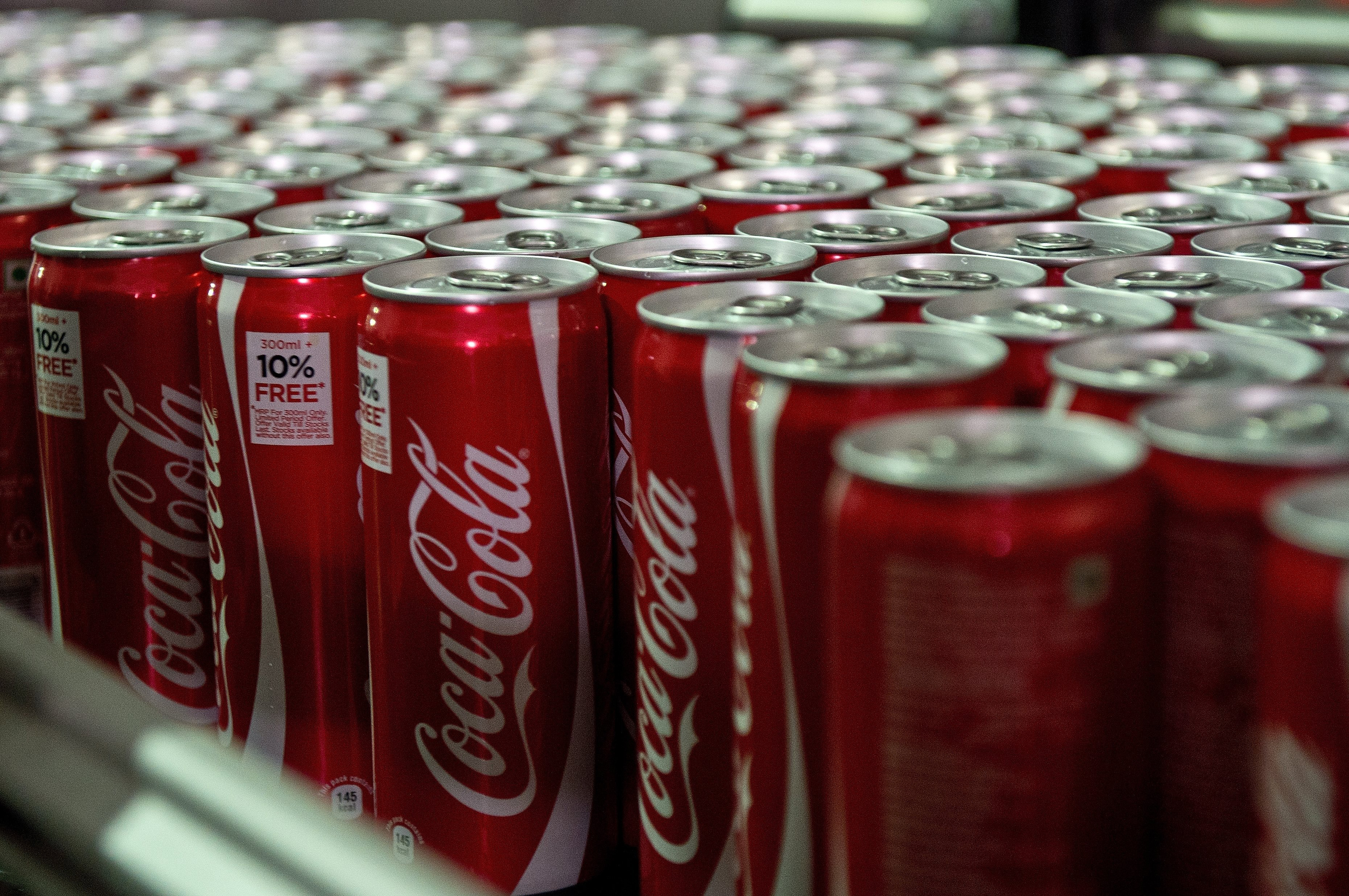Coke is bankrolling health researchers who play down sugar's role in obesity


Most advice for losing weight comes down to some combination of "eat less and exercise," but most nutritionists and public health experts place more weight on the first part: Consuming fewer calories, especially "empty" calories from things like sugary beverages.
There are reputable researchers who argue that America's sedentary lifestyle is more to blame for its obesity epidemic than, say, America's skyrocketing rate of sugar consumption — and, reports Anahad O'Connor at The New York Times, many of those researchers receive significant financial backing from Coca-Cola Inc. O'Connor focuses largely on a new nonprofit, Global Energy Balance Network, which received at least $1.5 million in startup money from Coke last year and promotes the idea that fast food and sugary drinks are being unfairly targeted in public health campaigns.
Despite the millions in funding Coke has provided the new nonprofit and its two founding members since 2008, and the fact that the group's website is registered to Coca-Cola, Coke is "not running the show," Global Energy Balance Network president James O. Hill, a professor at the University of Colorado School of Medicine, tells The New York Times. "We're running the show."
The Week
Escape your echo chamber. Get the facts behind the news, plus analysis from multiple perspectives.

Sign up for The Week's Free Newsletters
From our morning news briefing to a weekly Good News Newsletter, get the best of The Week delivered directly to your inbox.
From our morning news briefing to a weekly Good News Newsletter, get the best of The Week delivered directly to your inbox.
It isn't uncommon for food companies and industry groups to bankroll scientific research, but an analysis of such research on sugary drinks published December 2013 in PLOS Medicine found that studies financed by Coke, Pepsi, the American Beverage Association, and sugar interests were five times more likely to exculpate sugary drinks from weight gain than those where the researchers didn't report any industry backing.
"Coca-Cola's sales are slipping, and there's this huge political and public backlash against soda, with every major city trying to do something to curb consumption," public health lawyer Michele Simon tells The Times. "This is a direct response to the ways that the company is losing. They're desperate to stop the bleeding." You can read more about the Global Energy Balance Network and Coke at The New York Times.
A free daily email with the biggest news stories of the day – and the best features from TheWeek.com
Peter has worked as a news and culture writer and editor at The Week since the site's launch in 2008. He covers politics, world affairs, religion and cultural currents. His journalism career began as a copy editor at a financial newswire and has included editorial positions at The New York Times Magazine, Facts on File, and Oregon State University.
-
 All roads to Ukraine-Russia peace run through Donetsk
All roads to Ukraine-Russia peace run through DonetskIN THE SPOTLIGHT Volodymyr Zelenskyy is floating a major concession on one of the thorniest issues in the complex negotiations between Ukraine and Russia
-
 Why is Trump killing off clean energy?
Why is Trump killing off clean energy?Today's Big Question President halts offshore wind farm construction
-
 8 restaurants that are exactly what you need this winter
8 restaurants that are exactly what you need this winterThe Week Recommends Old standards and exciting newcomers alike
-
 TikTok secures deal to remain in US
TikTok secures deal to remain in USSpeed Read ByteDance will form a US version of the popular video-sharing platform
-
 Unemployment rate ticks up amid fall job losses
Unemployment rate ticks up amid fall job lossesSpeed Read Data released by the Commerce Department indicates ‘one of the weakest American labor markets in years’
-
 US mints final penny after 232-year run
US mints final penny after 232-year runSpeed Read Production of the one-cent coin has ended
-
 Warner Bros. explores sale amid Paramount bids
Warner Bros. explores sale amid Paramount bidsSpeed Read The media giant, home to HBO and DC Studios, has received interest from multiple buying parties
-
 Gold tops $4K per ounce, signaling financial unease
Gold tops $4K per ounce, signaling financial uneaseSpeed Read Investors are worried about President Donald Trump’s trade war
-
 Electronic Arts to go private in record $55B deal
Electronic Arts to go private in record $55B dealspeed read The video game giant is behind ‘The Sims’ and ‘Madden NFL’
-
 New York court tosses Trump's $500M fraud fine
New York court tosses Trump's $500M fraud fineSpeed Read A divided appeals court threw out a hefty penalty against President Trump for fraudulently inflating his wealth
-
 Trump said to seek government stake in Intel
Trump said to seek government stake in IntelSpeed Read The president and Intel CEO Lip-Bu Tan reportedly discussed the proposal at a recent meeting
